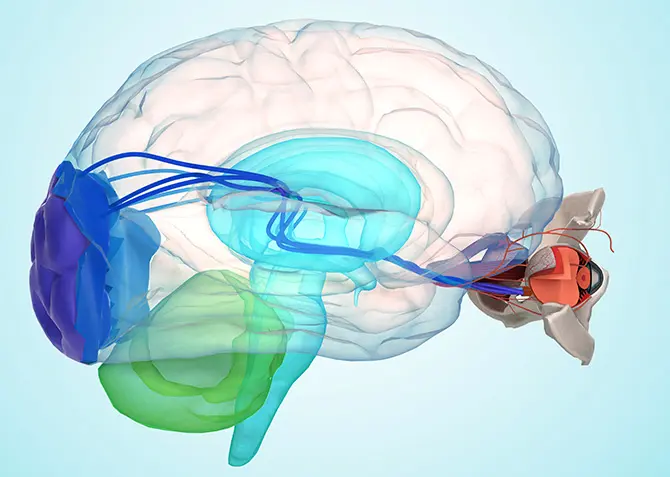Neuro-Ophthalmology
Neuro-ophthalmology can be described as a subspecialty that merges the fields neurology and ophthalmology. Neuro-ophthalmology often deals with complex systemic diseases that manifest themselves in the patient’s visual system. Neuro-ophthalmology usually focuses on nervous system diseases that affect people’s vision, pupillary reflexes, or control of eye movements. Such issues may be due to brain injuries or diseases, such as trauma, an infection, or a stroke.
What is a Neuro-Ophthalmologist?
Neuro-ophthalmologists are doctors who deal with visual problems that are related to the nervous system, which means problems that don’t actually come from the eyes. A neuro-ophthalmologist complete 5 years of clinical training after finishing medical school. He/she is also board-certified in Ophthalmology, Neurology or both of these fields.
While some problems that fall into this field are not really worrisome, certain conditions can worsen with time and cause permanent visual loss in patients, even becoming life-threatening. The problem might be confined to the optic nerve, and the nervous system, or sometimes it can be related to a general medical condition. This is why neuro-ophthalmologists should be able to evaluate their patients from medical, ophthalmologic, and neurologic standpoints, and diagnose a very wide range of problems.
Neuro-ophthalmologic Evaluation
The neuro-ophthalmologic evaluation is a quite comprehensive process which may take a few hours to finish. The patient is asked to give an account of their problem and relate their medical history, which should include previous operations, serious illnesses, hospitalizations, allergies, and medical problems in family members. There will be a complete eye examination, which may include peripheral vision testing (visual field test). There may also be a neurologic exam to test the patient’s sensation, strength, and coordination.
Once the examination is over, the neuro-ophthalmologist will talk about the diagnosis -or diagnoses- and possible treatment options.
Neuro-ophthalmology Treatments
Necessary neuro-ophthalmology treatment depends on the specific situation of the patient. But treatment options usually include:
- Corrective lenses
- Botox (for muscle spasms)
- Surgical operations
It is best to speak with a neuro-ophthalmologist to learn the possible treatment options. Depending on the patient’s situation, a neuro-ophthalmologist may require some tests, including optical coherence tomography, electroretinography, and multi-focal EGRs.
Neuro-ophthalmology Prices in Turkey
Turkey, especially İstanbul, is preferred by a lot of people from around the globe, for all kinds of medical and cosmetic operations, due to its affordable prices and experienced doctors. If you are looking to get neuro-ophthalmology services in İstanbul, Turkey, you can contact us to get precise price information. Prices may vary depending on the condition of the patient, and the expertise level of the Neuro-Ophthalmologist. You can use the contact form on this website and request a free consultation, and our team of experts will be happy to inform you.


